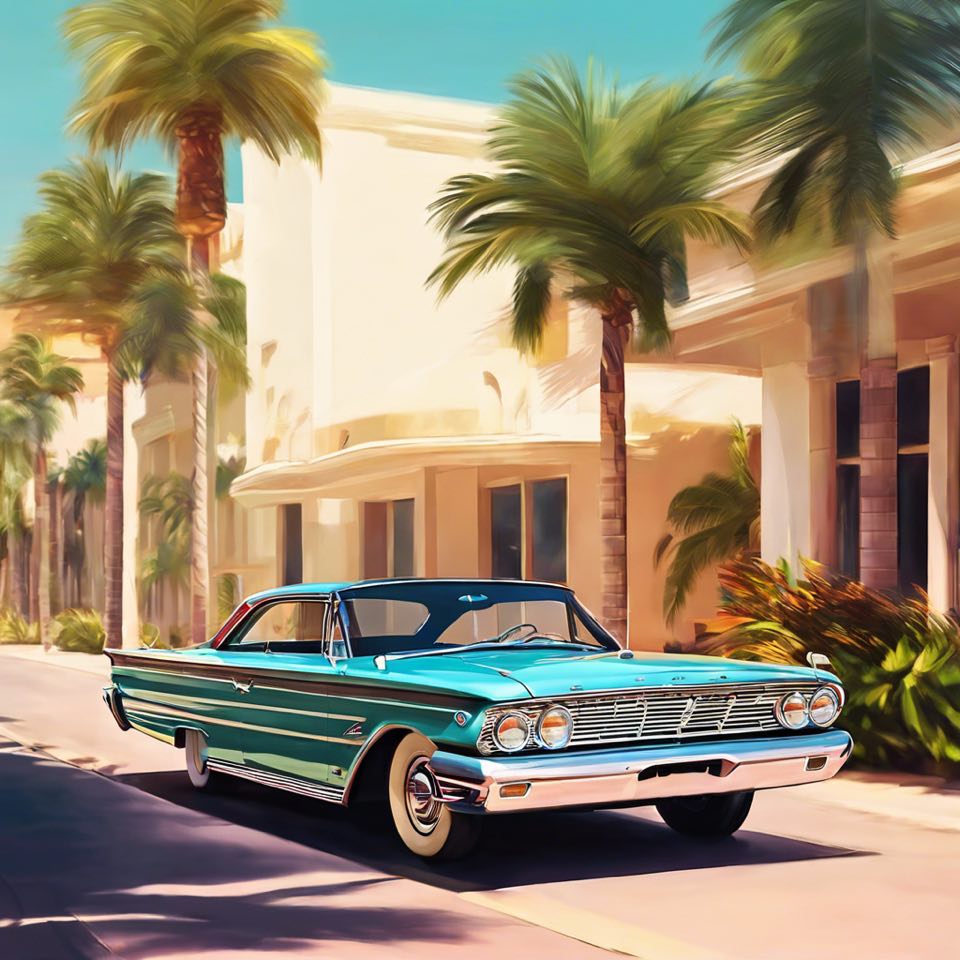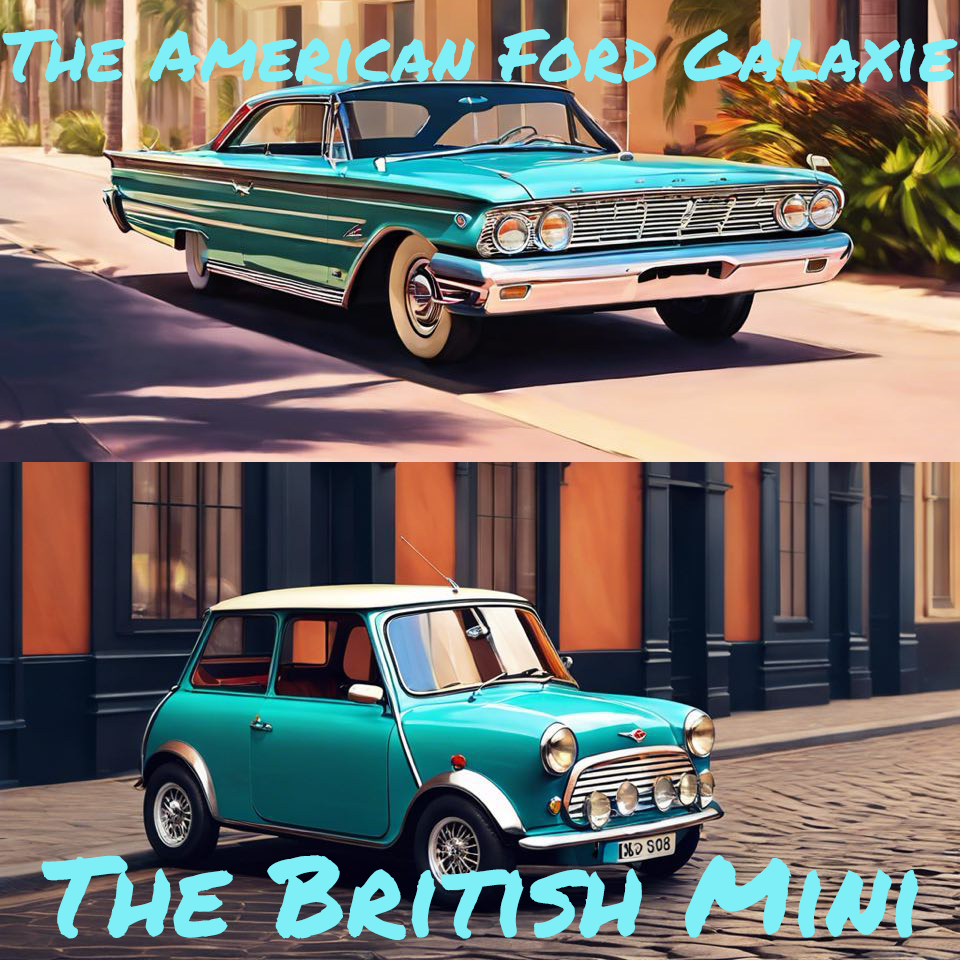Estimated Reading Time: 4 min
The British Mini
The British Mini, known simply as the Mini, is a compact car that has become a classic in automotive history. Here’s a detailed overview:
Introduction:
- Launch Year: 1959
- Manufacturer: British Motor Corporation (BMC)
- Designer: Sir Alec Issigonis
Design:
- Body Style: Typically a two-door sedan, with variations including a four-door model and a convertible.
- Dimensions: Compact size, with a length of about 3 meters (10 feet) and a width of around 1.5 meters (5 feet).
- Engine Layout: Front-wheel drive with a transverse engine, a design that was revolutionary for its time.
Performance:
- Engine Options: Initially equipped with a 848cc inline-four engine, which was later upgraded to larger engines, including the 1.3-liter.
- Transmission: Available with both manual and automatic transmission options.
- Driving Experience: Known for its nimble handling and fun driving dynamics, making it a favorite among driving enthusiasts.
Cultural Impact:
- Iconic Status: The Mini became a symbol of the 1960s British pop culture and was associated with the “swinging sixties.”
- Film Appearances: Featured prominently in movies such as “The Italian Job,” which showcased its agility and compactness during chase scenes.

Motorsport Heritage:
- Rally Success: The Mini Cooper variant achieved significant success in motorsport, winning the Monte Carlo Rally three times (1964, 1965, 1967).
- John Cooper: Collaborated with BMC to enhance the Mini’s performance, leading to the development of the Mini Cooper.
Production History:
- Original Production: The classic Mini was produced until 2000, with over 5 million units sold.
- Modern Revival: In 2001, BMW relaunched the Mini brand with a modern interpretation that retained the classic design elements while introducing advanced technology.
Variants:
- Mini Cooper: A sportier version with enhanced performance.
- Mini Clubman: A longer variant with additional cargo space.
- Mini Convertible: A soft-top version for open-air driving.
Legacy:
- Fan Community: The Mini has a passionate following, with clubs, events, and restoration projects celebrating its history.
- Design Influence: The Mini’s design principles have influenced numerous other vehicles and continue to inspire automotive design today.
The British Mini is not just a car; it represents a significant chapter in automotive history, characterized by its innovative design, cultural relevance, and enduring popularity. Whether in classic or modern form, the Mini remains a beloved icon for car enthusiasts around the world.
The American Ford Galaxie
The American Ford Galaxie is a full-size automobile that was produced by Ford Motor Company from 1959 to 1974. It is known for its distinctive styling, performance, and role in American automotive history. Here’s a detailed overview:
Introduction:
- Launch Year: 1959
- Manufacturer: Ford Motor Company
- Market Position: Positioned as a premium full-size car, available in various trim levels.
Design:
- Body Styles: Available in multiple configurations, including two-door hardtops, four-door sedans, and convertibles.
- Styling: The Galaxie was known for its bold, aerodynamic design with prominent tailfins in the early years, evolving to a more streamlined appearance in later models.
Performance:
- Engine Options: Offered a range of V8 engines, from the standard 292 cubic inch to the high-performance 428 cubic inch engine in the late models.
- Transmission: Typically equipped with either a three-speed manual or a three-speed automatic transmission.
- Driving Experience: Known for its smooth ride and powerful performance, making it popular among drivers looking for comfort and power.
Cultural Impact:
- Popularity: The Galaxie gained a reputation as a family car and was also popular among enthusiasts for its performance variants.
- Racing Heritage: The Galaxie had success in NASCAR racing, particularly in the 1960s, contributing to Ford’s racing pedigree.

Production History:
- Generations: The Galaxie went through several generations, with significant design changes occurring in the early 1960s and mid-1960s.
- End of Production: Production ceased in 1974 as consumer preferences shifted towards smaller cars and fuel-efficient models.
Variants:
- Galaxie 500: A higher trim level that included more luxury features and options.
- Galaxie 500 XL: A sportier version with enhanced performance and styling elements.
Legacy:
- Collector’s Item: Today, classic Ford Galaxies are sought after by collectors and enthusiasts, valued for their classic American styling and performance.
- Cultural References: The Galaxie has appeared in various films and television shows, cementing its place in American pop culture.
The American Ford Galaxie is a classic representation of mid-20th century American automotive design and engineering. With its combination of style, performance, and comfort, the Galaxie remains a beloved classic car, celebrated by enthusiasts and collectors alike.

